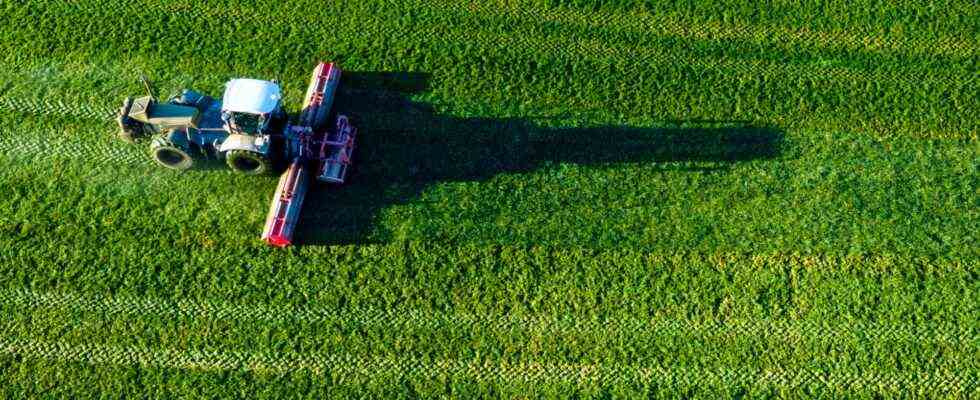Status: 13.12.2021 8:45 a.m.
More “green” agriculture, more animal welfare – away from factory farming and depleted soils: this is what the new government has taken on. What does the coalition agreement mean for farmers?
More animal welfare for pigs, cattle and poultry, more organic farming. The SPD, Greens and FDP have agreed on this. Vice Chancellor and Minister Robert Habeck made this clear. “We have the extinction of species and the extinction of farms. It calls for a new way of thinking in agricultural policy that does not only know ‘grow or soften’,” said the Green politician. Smaller farms in particular are disadvantaged. The number of these has decreased drastically in the past few years, while the number of fewer larger companies has increased. Among other things, the traffic light parties want to take countermeasures here.
More animal welfare, but unresolved funding
This is an important project for Georg Janßen. Janßen is the federal manager of the working group for rural agriculture. Basically, he sees the plans of the traffic light parties as positive. “The draft of the coalition agreement is first of all a sensible foundation to be able to react to the many challenges,” said Janßen dem ARD capital studio. Take animal welfare as an example: Farmers should be supported in the conversion to more species-appropriate animal husbandry. The costs that arise on the farms for new stables, for example, should be offset.
Only how that should be financed remains unclear. Financing is planned primarily through the economy. “We need the reorganization of animal husbandry,” Janßen clarifies, and there are good approaches to be found in the coalition agreement. But: “This conversion will not be financed from the market alone. That will only work if the state helps,” Janßen is convinced.
Joachim Rukwied, President of the German Farmers’ Association, is more cautious. He, too, speaks of the many challenges for farmers: “With a view to implementation, we then have to discuss things, we can’t really find anything specific,” complains Rukwied.
The SPD, Greens and FDP also want to introduce a binding animal welfare label from next year; a project that was not implemented by the previous government. In addition, the proportion of organic farming is to increase further in the future: to 30 percent of the cultivated area by 2030. The use of pesticides is also to be restricted.
Much remains vague
Harald Grethe, an agricultural scientist at the Humboldt University in Berlin, considers the coalition agreement to be very vague in most areas. But you can make a lot of it, he told him ARD capital studio, also with a view to the personal details: The agriculture department will in future be headed by the Green politician Cem Özdemir, the environment department also went to the Greens. As a result, both ministries are no longer – as in the past – part of two different parties.
Grethe believes that this is an advantage: “If we take into account that the ministries that are particularly important for agriculture – agriculture and nutrition and the environment – will be green, we can say that more sustainability services will be demanded from agriculture,” he said Agricultural scientist, and he is convinced: “It will also happen that you can earn more money with these services.”
This is also about subsidy money. The traffic light parties want to present a concept in future, according to which the money is used more specifically for farmers: namely for more for environmental and animal welfare services. As far as the conversion of animal husbandry is concerned, Grethe, like Janßen from rural agriculture, advocates a tax-financed model. Here we have to agree: “Ultimately it doesn’t matter how it is financed for animal welfare, the main thing is that it is financed and we can achieve a nationwide improvement in animal welfare in Germany.” Janßen emphasizes: Farmers are ready to change. In the end, however, it depends on everyone: politics, the farmers, but also the economy – and last but not least, the consumers.
The traffic light coalition agreement and its significance for farmers
Claudia Plaß, ARD Berlin, December 10th, 2021 12:35 p.m.

